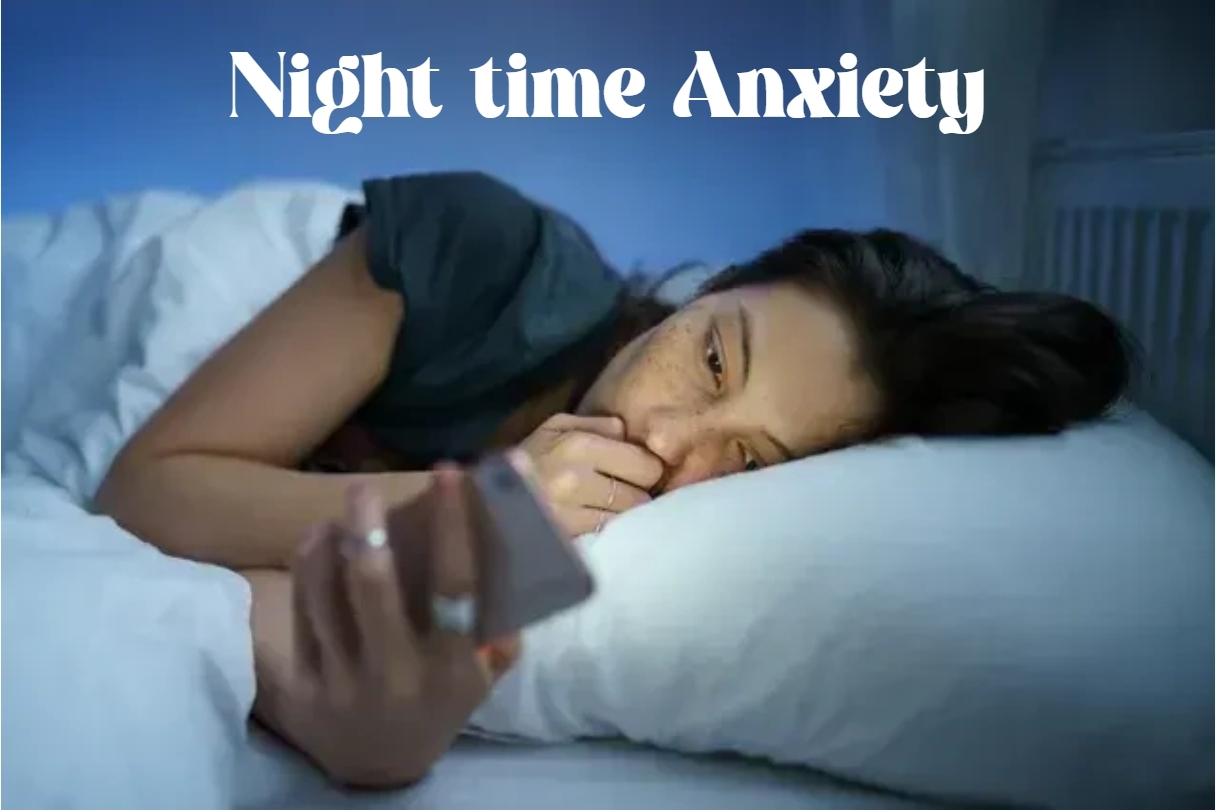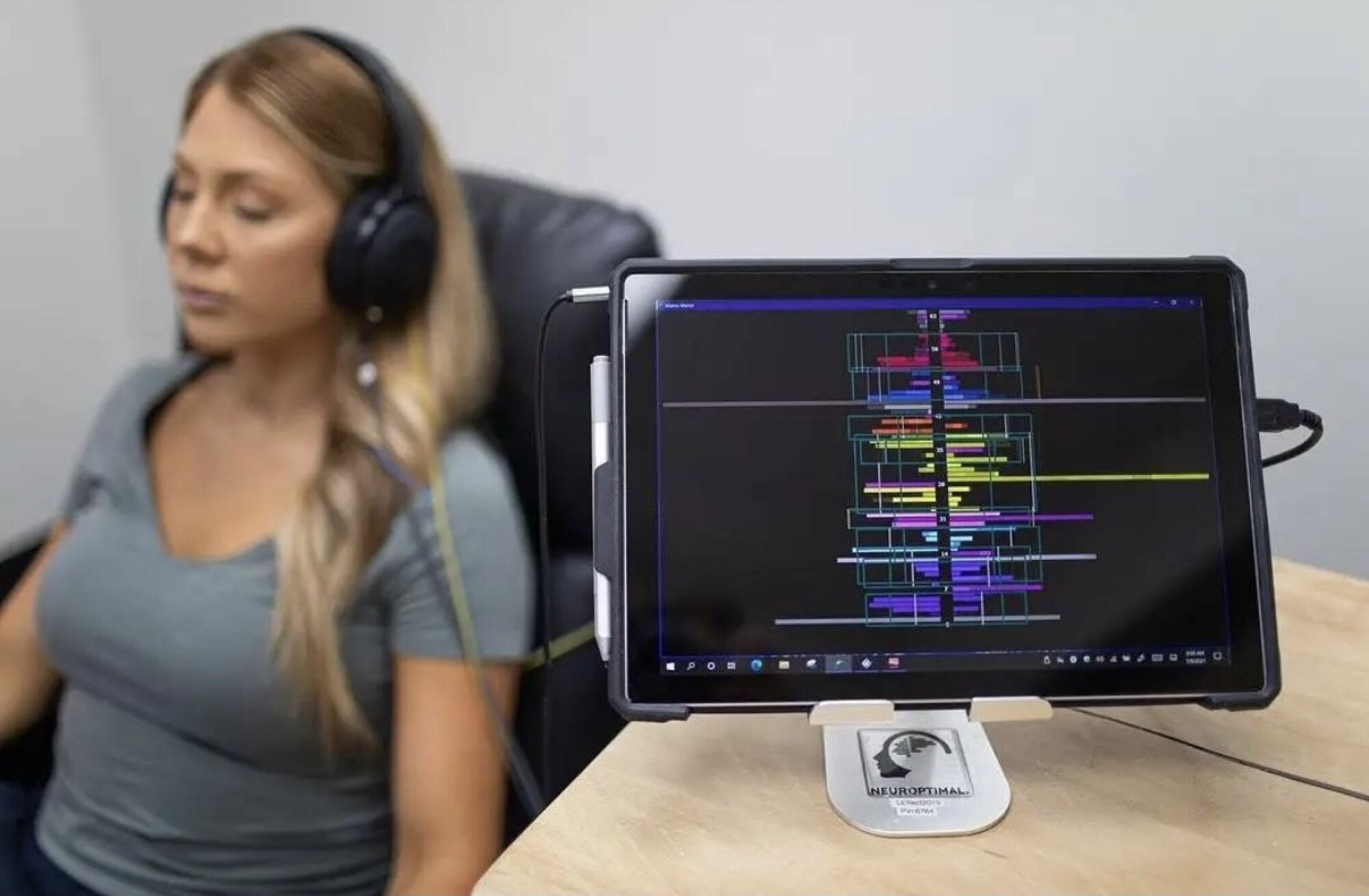Financial Stress Sleep Crisis: How America’s Cost-of-Living Emergency Is Creating a Nation of Insomniacs

New research reveals that 53% of Americans can’t sleep due to money worries, while housing instability and inflation trigger epidemic levels of anxiety-driven sleep disorders.
A comprehensive study of 1,000 Americans reveals the devastating connection between economic pressure and sleep health, as financial stress reaches crisis levels and traditional sleep medicine fails to address the underlying anxiety driving widespread insomnia.
The Hidden Health Crisis Behind America’s Economic Struggle
While economists debate inflation rates and housing markets, a parallel health emergency unfolds in bedrooms across America. New research from AffordableHousingHub.org reveals that 53% of Americans report that financial stress has disrupted their sleep, creating the largest stress-induced sleep crisis in modern history.
The study of 1,000 U.S. adults exposes a stark reality: economic pressure isn’t just straining budgets—it’s systematically destroying the sleep health of millions, with consequences that extend far beyond tired mornings into compromised immune systems, cognitive decline, and deteriorating mental health.
The scope is staggering: Over half of Gen Z (55%) and Millennials (57%) experience anxiety or panic attacks due to financial pressure, while 46% of all Americans now use credit cards to afford necessities like food and utilities. For many, the stress of economic survival has made restful sleep nearly impossible.
The Neurobiology of Financial Fear
How Money Stress Hijacks Sleep Architecture
Understanding why financial worry destroys sleep requires examining how the brain processes economic threats. When faced with financial uncertainty, the nervous system activates the exact survival mechanisms our ancestors used to escape physical danger, except modern financial stress never ends.
The neurological cascade includes:
- Elevated cortisol production disrupts natural sleep-wake cycles
- A hyperactivated amygdala maintains constant threat detection during sleep
- Suppressed melatonin release prevents natural sleep onset
- Fragmented REM sleep interferes with emotional processing and memory consolidation
Dr. Sarah Chen, a sleep neurologist at Stanford, explains: “Financial stress creates a state of chronic hypervigilance where the brain interprets economic uncertainty as immediate physical danger. The result is a nervous system that cannot shut down, even during sleep.”
The Anxiety-Insomnia Feedback Loop
Financial stress and sleep disruption create a vicious cycle that becomes increasingly difficult to break:
- Economic pressure triggers anxiety and sleep disruption
- Sleep deprivation impairs decision-making and emotional regulation
- Poor choices and increased reactivity worsen financial situations
- Worsening financial pressure escalates anxiety and sleep problems
- The cycle intensifies with each iteration
Research shows this feedback loop can become self-sustaining within weeks, creating chronic conditions that persist even when financial circumstances improve.
The Demographics of Desperation
Young Adults Bear The Heaviest Burden
The study reveals generational differences in how financial stress affects sleep and mental health:
Gen Z (ages 18-27):
- 55% experience financial anxiety or panic attacks
- 56% of women rely on credit cards for necessities
- Half report feeling emotionally overwhelmed frequently or constantly
- The highest rates of mental health care access barriers (nearly 1 in 5 can’t afford it)
Millennials (ages 28-43):
- 57% experience financial-related anxiety or panic
- 51% of women use credit for essentials
- Higher debt burdens from student loans and housing costs
- Peak family formation years intensifying financial pressure
Single Adults at Highest Risk:
- 41% more likely than married adults to report financial stress
- Higher vulnerability due to a lack of dual incomes and support systems
- Greater isolation during economic hardship
The Gender Sleep Gap
Women report significantly higher rates of sleep disruption due to financial stress, with several contributing factors:
- Greater responsibility for household financial management
- Lower average earnings create heightened economic vulnerability
- Higher rates of single parenthood and associated financial pressure
- Cultural conditioning toward worry and financial anxiety
Housing: The Sleep Killer
When Home Becomes a Source of Stress
The study reveals housing instability as a primary driver of sleep disruption, with renters experiencing dramatically higher stress levels than homeowners.
The housing-sleep crisis by numbers:
- 45% of renters feel trapped by housing costs (vs. 24% of homeowners)
- One in three Americans feels trapped by rising housing costs overall
- One in four avoid looking at housing listings because it’s too discouraging
- 18% have missed rent or mortgage payments to cover other expenses
Regional variations show geographic patterns:
- High-cost urban areas report the highest rates of housing-related sleep disruption
- Rental markets with rapid price increases show elevated anxiety levels
- Areas with limited affordable housing demonstrate higher stress-related sleep disorders
The Psychological Impact of Housing Insecurity
Housing instability creates unique sleep challenges because the home represents safety and security at the most fundamental level. When housing becomes uncertain, the brain interprets this as an existential threat.
Housing-specific sleep disruption includes:
- Hypervigilance about rental renewals causes pre-dawn anxiety
- Financial calculations during sleep prevent deep sleep phases
- Displacement anxiety creates chronic stress responses
- Neighborhood safety concerns in lower-cost housing areas
The Economic Cost of Sleep Loss
Productivity and Healthcare Implications
Sleep disruption from financial stress creates economic costs that compound the original financial problems:
Individual Economic Impact:
- Reduced work performance leading to career limitations
- Increased healthcare costs from stress-related conditions
- Poor financial decision-making due to sleep-deprived cognition
- Higher accident rates are affecting insurance and work stability
National Economic Burden:
- $411 billion annually in lost productivity due to insufficient sleep
- Higher healthcare utilization for stress-related conditions
- Reduced consumer spending as financial anxiety increases
- Decreased innovation and entrepreneurship due to cognitive impairment
The Healthcare System Response Gap
Traditional healthcare approaches fail to address the root causes of financially induced sleep disruption:
Current limitations include:
- Sleep medications that don’t address underlying anxiety
- Cognitive behavioral therapy may not be economically accessible
- Fragmented care between mental health and sleep medicine
- Lack of integration between financial counseling and sleep health
Survival Strategies and Their Hidden Costs
How Americans Are Coping—And Why It’s Not Working
The study reveals concerning patterns in how Americans attempt to manage financial stress and its sleep consequences:
Short-term financial strategies:
- 46% use credit cards for necessities (creating future stress)
- 29% sell personal belongings for cash
- Nearly one-third borrow money from family or friends
- One in five taps emergency savings for current expenses
Sleep management attempts:
- Over-the-counter sleep aids that don’t address anxiety
- Alcohol consumption before bed (disrupting sleep quality)
- Screen time increases as a distraction (worsening sleep)
- Caffeine overconsumption to combat daytime fatigue
The Emotional Disengagement Phenomenon
Perhaps most concerning, the study found that one in four Americans feel too emotionally overwhelmed to act on issues they care about. This “emotional disengagement” represents a protective shutdown that can worsen financial and sleep problems.
Signs of emotional disengagement include:
- Avoidance of financial planning or budgeting
- Withdrawal from social support systems
- Reduced civic engagement and community involvement
- Decreased help-seeking behavior for both financial and health issues
The Sleep Recovery Solution: Addressing Root Causes
While traditional sleep medicine focuses on symptoms, innovative approaches are being used to address the neurological impact of financial stress on sleep architecture. Sleep Recovery Inc., a concierge-level practice using brainwave entrainment technology, has developed protocols targeting stress-induced sleep disruption.
The Neurofeedback Approach to Financial Stress Sleep Disorders
Sleep Recovery’s methodology recognizes that financially induced insomnia requires addressing the hyperaroused nervous system rather than simply promoting sleep. Their treatment approach includes:
Stress-Specific Assessment:
- Analysis of stress-related brain wave patterns during sleep attempts
- Identification of anxiety-driven neural activation preventing sleep onset
- Personalized protocols based on individual stress response patterns
- Integration of financial stress factors into treatment planning
Targeted Neural Training:
- Autonomic nervous system regulation to reduce fight-or-flight activation
- Anxiety circuit training to restore normal threat processing
- Sleep architecture restoration through brain wave entrainment
- Stress resilience building to prevent future sleep disruption
Results for Financial Stress-Related Sleep Disorders
Sleep Recovery’s approach has shown particular effectiveness for individuals whose sleep problems stem from economic anxiety:
Documented outcomes include:
- Up to 85% reduction in anxiety-related sleep disruption
- Restored sleep onset within 15-30 minutes (vs. hours of worry)
- Improved stress resilience, enabling better financial decision-making
- Long-term results that persist through economic challenges
Client Success Example: Rachael, a 32-year-old teacher facing housing uncertainty, experienced chronic insomnia that worsened her financial anxiety. After completing Sleep Recovery’s program, she reported: “I can sleep even when I’m worried about rent. The training taught my brain to separate financial concerns from sleep time. Now I can think clearly about money decisions instead of lying awake panicking.”
The Comprehensive Treatment Model
Immediate Intervention:
- Rapid nervous system stabilization to break the anxiety-insomnia cycle
- Sleep architecture restoration to improve cognitive function
- Stress response training to reduce the impact of financial worry
- Crisis support during acute financial stress periods
Long-term Resilience Building:
- Neural pattern modification to prevent future stress-induced sleep disruption
- Cognitive enhancement to improve financial decision-making capacity
- Emotional regulation training to manage economic uncertainty
- Stress inoculation to build resilience against future financial challenges
Policy Implications and Systemic Solutions
Beyond Individual Treatment: Addressing Root Causes
While brainwave training and other treatments can help individuals manage financial stress-induced sleep disruption, systemic changes are needed to address the epidemic scale of the problem.
Housing Policy Solutions:
- Rent stabilization measures to reduce housing-related anxiety
- Affordable housing development to decrease the housing cost burden
- First-time buyer assistance to improve housing security
- Tenant protection laws to reduce displacement anxiety
Economic Security Measures:
- Living wage policies to reduce financial stress
- Emergency assistance programs for crises
- Financial literacy education integrated with stress management
- Healthcare access to sleep and mental health services
Healthcare System Integration:
- Recognition of financial stress as a medical factor in sleep disorders
- Integrated treatment approaches combining financial counseling with sleep medicine
- Insurance coverage for stress-related sleep treatments
- Preventive care models addressing social determinants of sleep health
Moving Forward: Breaking the Crisis Cycle
The connection between financial stress and sleep disruption represents more than individual health challenges—it’s a systemic crisis requiring comprehensive solutions. As the study reveals, traditional approaches that separate economic problems from health outcomes are insufficient for addressing the scope and complexity of financially induced sleep disorders.
Immediate steps for individuals include:
- Recognizing the connection between financial worry and sleep problems
- Seeking integrated treatment that addresses both anxiety and sleep
- Building financial support networks to reduce isolation
- Prioritizing sleep health is essential for financial decision-making
Community and policy responses must include:
- Housing stability initiatives to reduce a primary source of sleep-disrupting stress
- Mental health integration in financial assistance programs
- Workplace wellness programs addressing financial stress and sleep health
- Healthcare system reform to treat the whole person, not just symptoms
The research clarifies that America’s sleep crisis cannot be separated from its economic challenges. As 53% of Americans lose sleep over money, the need for real-world, boots-on-the-ground solutions that address financial security and sleep health becomes urgent. The cost of inaction—measured in productivity loss, healthcare burden, and human suffering—far exceeds the investment required for systemic change.
The time for integrated solutions is now. Whether through innovative treatments like neurofeedback that address stress-induced sleep disruption or policy changes that tackle root economic causes, America must recognize that sleep health and financial security are inseparably linked in the modern economy.
References and Sources:
- AffordableHousingHub.org. (2025). “Crisis Fatigue: The Burnout Behind the Cost of Living in America.” Survey of 1,000 U.S. adults, May 2025. Retrieved from: https://affordablehousinghub.org/affordable-housing/crisis-fatigue-the-burnout-behind-the-cost-of-living-in-america
- Fox4News. (2025). “Most Americans losing sleep over money stress, study finds.” Retrieved from: https://www.fox4news.com/money/americans-sleep-stress-money
- Centers for Disease Control and Prevention. (2024). “Sleep and Sleep Disorders: Data and Statistics.” National Center for Chronic Disease Prevention and Health Promotion.
- American Academy of Sleep Medicine. (2024). “Economic Burden of Insufficient Sleep in the United States.” Sleep Health Journal.
- National Sleep Foundation. (2024). “Stress and Sleep: Understanding the Connection.” Sleep Health Research.
- Federal Reserve Bank of St. Louis. (2025). “Housing Costs and Economic Stress: Regional Analysis.” Economic Research Division.
- Sleep Recovery Inc. Clinical outcomes data (2024). “Neurofeedback Treatment for Stress-Induced Sleep Disorders.” Internal research report.
- Journal of Sleep Research. (2024). “Financial Stress and Sleep Architecture: Neurobiological Mechanisms.” Vol. 33, Issue 2.
- Harvard T.H. Chan School of Public Health. (2024). “Social Determinants of Sleep Health.” Department of Health Policy and Management.
- Bureau of Labor Statistics. (2025). “Consumer Price Index and Housing Costs.” U.S. Department of Labor.
For treatment information: https://SleepRecovery.Net
Or call: 1-800-927-2339


